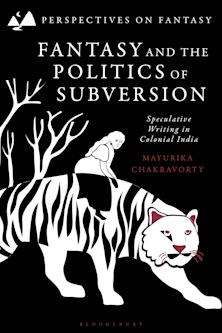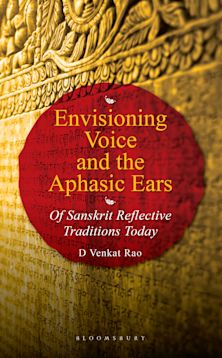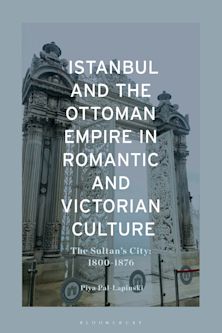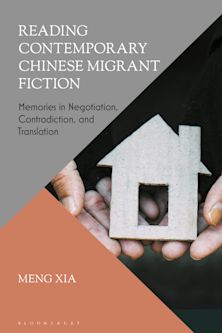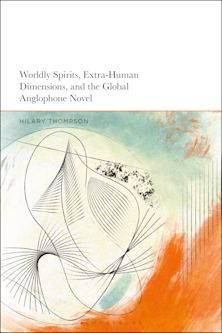- Home
- ACADEMIC
- Literary Studies
- Asian Literature
- Four Quartets in the Light of the Chinese Jar
This product is usually dispatched within 2-4 weeks
- Delivery and returns info
-
Flat rate of $10.00 for shipping anywhere in Australia
You must sign in to add this item to your wishlist. Please sign in or create an account
Description
Four Quartets in the Light of the Chinese Jar discusses how Four Quartets should be explored afresh with a prosodic-philosophically sustained interdisciplinary and cross-cultural literary approach in ways as the often overlooked pivotal image of the Chinese jar so indicates in the great sequence; the pivotal image suggests the subtle but vital elixir from both “The ‘shores of Asia and the Edgware Road’ [which] are brought together as they had been brought together to The Waste Land.” With a steady focus on the function words-mediated and phonemes-facilitated, and “autochthonously” void-suggesting verbal transformation, the book shows how the verbal transformation, especially of the cases with “parts of speech” in the live context, makes Four Quartets truly a “rhythmical creation of [meaningful] beauty”; it demonstrates how the meaningful poetic beauty culminates in a quintessential state or being of poetry not merely being “poetic” particularly in terms of its prosodically sustained philosophical tenets, which are often so serendipitously transformed into “virtuoso mastery of verbal music.” As genuine poetry, the great sequence flows freely from inside out at once in accordance with and in spirt of any given rhythmical form or rhyming pattern.
Table of Contents
Chapter 2: “Burnt Norton”: Timely Timeless Time in Motionless Motion Captured in Worded World
Chapter 3: “East Coker”: Knowing Time as Stranded on Land but Enlivened in Words
Chapter 4: “The Dry Salvages”: Knowing Oneself through Function Words-Mediated Oceanic View of Time
Chapter 5: “Little Gidding”: Reconciliation of the Irreconcilable in the Mode of “a Chinese Jar” through Timely Timeless Time in Motionless Motion
Chapter 6: Conclusion: Interdisciplinary References that Illuminate from within and across Cultures
Product details
| Published | 04 Dec 2020 |
|---|---|
| Format | Hardback |
| Edition | 1st |
| Extent | 270 |
| ISBN | 9781793631657 |
| Imprint | Lexington Books |
| Dimensions | 229 x 161 mm |
| Publisher | Bloomsbury Publishing |
About the contributors
Reviews
-
In the dedication of “The Waste Land,” T. S. Eliot called Ezra Pound il miglior fabbro or “the best craftsman,” and like Pound, Eliot also turned to the East for spiritual resources as well as poetic materials. Shudong Chen has made a great effort to explore that aspect of Eliot’s poetic vision that has not been sufficiently discussed in any depth, and this book will be valuable reading for anyone interested in Eliot and modernism, particularly from the perspective of East-West comparative studies.
Zhang Longxi, City University of Hong Kong
-
This book by Shudong Chen marks a successful attempt to approach Four Quartets, the classic of the twentieth century,a masterpiece “to be moved towards, not reached,” It demonstrates new ways of exploring the infinite dimensions of this magnificent poetic work; it reveals the ingenious insight into its “les mots justes,” decodes its meaning-generating void, and opens up the intercultural discourse still hidden behind, between, and beyond the great sequence. From the perspective across linguistics, aesthetics and philosophy, this book is a nice model of stimulating and reflecting the inexhaustible vitality of literature and words, par excellence.
Wang Xiaodan, Associate Professor of English Language and Literature, Northwestern Polytechnical University, Xi'an, China
-
This book opens up a philosophical horizon that facilitates and deepens our understanding of the motion, movement, momentum, mode in Chinese intellectual and cultural landscape; it provides us a wonderful resource for an interplay between literature and philosophy as well as a joy in function-words-mediated flows of verbal music.
Robin R. Wang, author of Yinyang: The Way of heaven and Earth in Chinese Thought and Culture
-
Shudong Chen takes his readers on a dance through the Four Quartets like none other. He artfully interprets the text with attention to the invisible patterns, images and words that weave meaning throughout Eliot’s extraordinary poetry. Chen’s scholarship is reliable and meticulous, and he has made a valuable contribution to comparative literary studies.
Ann Pirruccello, Professor of Philosophy at The University of San Diego
-
This interdisciplinary and cross cultural approach to Eliot in Shudong Chen’s new book opens up Eliot’s Four Quartets, exploring new ways to look at the “slippery nature of time,” revealing the flow within the stillness of Eliot’s poetry. This fascinating exploration of the power and eloquence of Eliot’s “moving stillness” resonates through Four Quartets and beyond.
Tom Patterson, Ph.D., Director of International Education, Johnson County Community College
-
I was happy to read this uniquely well-informed and compelling study of Eliot’s Four Quartets. Shudong Chen has a vivid sense of the radiance of Eliot’s meditations, and he approaches the ‘still point of the turning world’ with his own strong reading. Eliot’s great sequence benefits from this kind of scrutiny. I can recommend this capable and thought-provoking book to anyone who wishes to go more deeply into Eliot’s poetic world.
Jay Parini, author of New and Collected Poems, 1975-2015

ONLINE RESOURCES
Bloomsbury Collections
This book is available on Bloomsbury Collections where your library has access.













